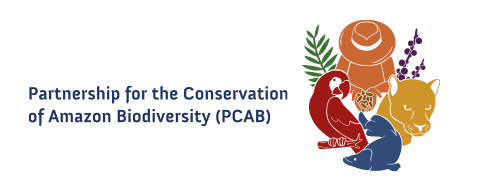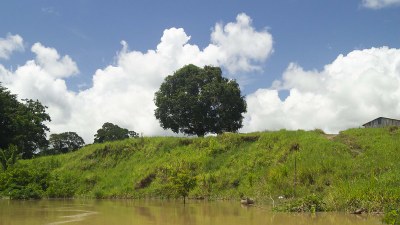Project will plant 1 million trees in Brazilian Amazon indigenous lands
Forest recovery work, which includes over 70 species, will be led by the Arbor Day Foundation and Forest Trends, a PCAB implementing partner
Nine indigenous lands in the Brazilian Amazon, covering approximately 1.5 million hectares, will receive one million new trees planted according to agroforestry techniques developed to increase carbon storage and support forest biodiversity.
Some marketable crops, such as açaí, Brazil nuts, cocoa and babassu, may provide sustainable income for the indigenous groups in charge of managing the restoration sites, thus increasing food security levels.
This project is the result of a partnership between the Arbor Day Foundation, Forest Trends, (a PCAB implementing partner) and local indigenous communities.
Eight of these indigenous lands are already covered by Nossa Floresta, Nossa Casa (Our Forest, Our Home), a program coordinated by the Forest Trends Communities and Territorial Governance Initiative with the support of USAID-Brasil since 2019. Now, the Arbor Day Foundation, the program's most recent partner, will add strength to this collective effort. Nossa Floresta, Nossa Casa focuses on improving local arrangements and the potential for agroforestry management in indigenous lands.
Area recovery – This partnership will support ongoing efforts to strengthen indigenous territorial governance and develop activities recovering degraded areas.
“We are proud to be expanding our global planting efforts in partnership with Forest Trends, and believe this ambitious project represents the power and importance of trees and forests,” said Dan Lambe, President of the Arbor Day Foundation.
For Michael Jenkins, CEO and Founding President of Forest Trends, this partnership with the Arbor Day Foundation "is an investment in a more sustainable economic model for the Amazon and forest communities around the world, which can help to keep forests intact.”
Beto Borges, Director of the Forest Trends Communities and Territorial Governance Initiative, said that “indigenous peoples are critical stewards of the world’s forests, because through their knowledge, traditional practices and respect, they live in harmony with nature, rather than infringing upon it. In difficult times such as the COVID-19 crisis we are going through, humanity has a lot to learn from indigenous peoples. It is high time we takecare of our forests – our great home called Nature.”
Deforestation rates are lower in forests controlled by indigenous peoples, but many communities are facing challenges in defending their areas from illegal invasion by miners, loggers, and land grabbers.
Territorial governance – Forest Trends has been implementing innovative strategies and economic incentive mechanisms for the conservation of biodiversity in forests and other ecosystems; conservation of water resources; the climate sustainability agenda; and in guaranteeing the rights and well-being of indigenous peoples and local communities. The Communities and Territorial Governance Initiative directly supports indigenous peoples in the political, economic and cultural management of their territories.
Tree planting – Founded in 1972, the Arbor Day Foundation has grown to become the largest nonprofit membership organization dedicated to planting trees, with more than one million members, supporters, and valued partners. Over 350 million Arbor Day Foundation trees have been planted in towns and forests throughout the world. It aims to help people understand and use trees as a solution to many of the global issues we face today, including air quality, water quality, climate change, deforestation, poverty and hunger.


